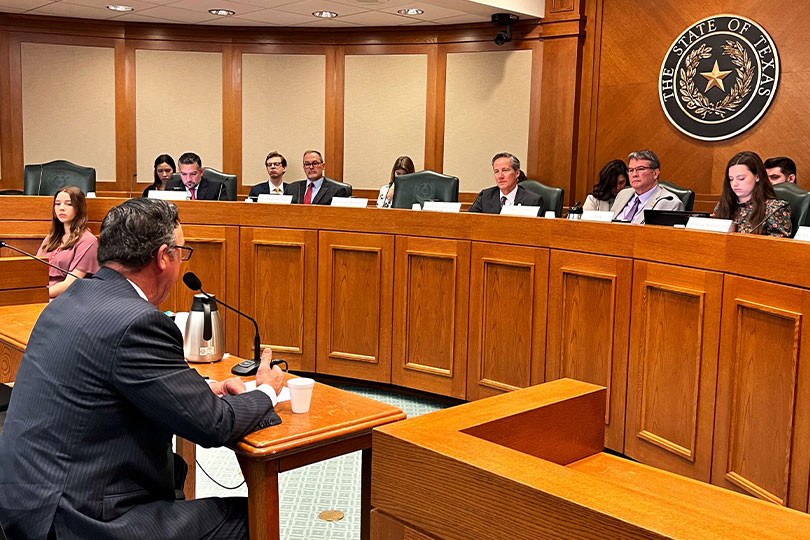By Julie Tomascik
Editor
As Texas grows increasingly urban, farmers and ranchers want to see the right to farm and ranch protected in the state constitution.
Those protections are outlined in HJR 126 by Rep. DeWayne Burns. The proposed constitutional amendment is sponsored in the Texas Senate by Sen. Charles Perry and was heard in the Senate Water, Agriculture and Rural Affairs Committee on Monday.
Texas Farm Bureau (TFB) President Russell Boening testified in support of the measure.
“Farming and ranching in Texas is becoming more difficult as our state grows, and Texans are disconnected from how we provide them with food and fiber,” Boening told the committee.
Local government regulations could jeopardize the future of some family farms.
Some cities are arbitrarily enforcing ordinances and regulations that restrict everyday farming and ranching practices.
Farmers aren’t allowed to grow vegetables within some city limits.
Hay bales in some cases must be removed from properties within a short period of time, usually 24-48 hours, to avoid penalties. In the Dallas-Fort Worth area, cities are using public nuisance ordinances to prohibit agricultural activities.
The overreach of city and municipal governments directly impacts family farms and ranches. And in Texas, 97% of farms are family-owned, like Boening’s family farm.
“Our operation, southeast of San Antonio, was started by my father and uncle, and now my brother and I have taken it over,” Boening said. “We farm 5,000 acres of grain sorghum, corn and other crops. We run about 450 head of beef cattle and have a dairy with 500 cows. All of this only 35 miles from downtown San Antonio.”
And as the state continues to lose agricultural land to development, Boening and other farmers are worried how that will impact their livelihood.
“The state will continue to change, but we count on our constitutional rights to protect us,” he said. “I can’t imagine where we would be today without the protection of our property rights in the constitution. But those rights don’t protect the responsible production of food and fiber from regulatory overreach. HJR 126 protects our livelihoods so that we can continue providing food and fiver for our state, our nation and the world.”
The constitutional amendment, which was passed by the House with a 144-0 vote, was left pending in the Senate committee.

